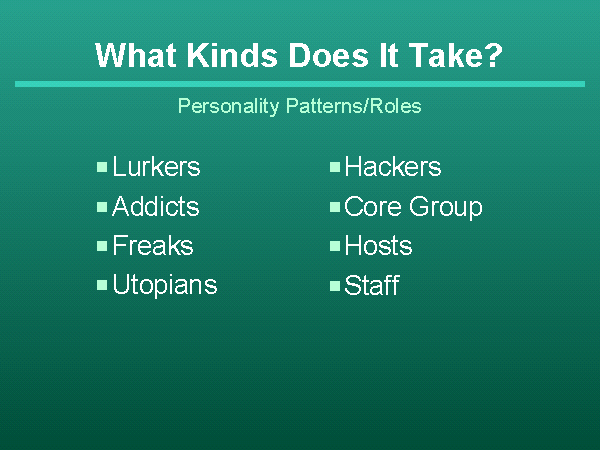





 Notes:
Notes:
Horn (pp. 30 - 42) says, "It takes all kinds to make up a place. People take their real-life, in-person dramas and bring them into cyberspace... People participate online as they do in life, and we have a variety of styles in the discourse... these patterns appear everywhere in cyberspace [but] different places attract styles ..." She indentifies eight distinct styles:
1) Lurkers - read but do not post;
2) Addicts - spend more than 200 hours per month in cyberville, more than they spend at their jobs;
3) Freaks - cyberspace sometimes attracts people everyone else has stopped listening to, ranging from those with no social skills, to psychopaths;
4) Utopians - can be the meanest of all because of their bitterness that others are not nicer than they are;
5) Hackers - are more interested in the hardware and software than the people, and may be either good guys or bad guys;
6) Core Group - those who find an online home, are happy, feel ownership in it, and don't want to move;
7) Hosts - one or two people who oversee each conference and, virtually speaking, "work the room tweaking conversations," introducing new participants, and settling disputes; and
8) Staff - employees of the host service who keep it up and running, physically.
The core, stakeholder groups that SpeakOut.com hopes to attract are those who wish to communicate more effectively to their elected officials concerning important public issues. Horn says, "Working through conflicts is what makes virtual communities true communities." (p. 103) Indeed, services are springing up to help advocates measure the strength of the commitment of their stakeholders. Two such services are "Outrage" and "PolicyMaker". Reference: http://www.ombwatch.org/npt/nptalk/mar2000/stahehld.html















